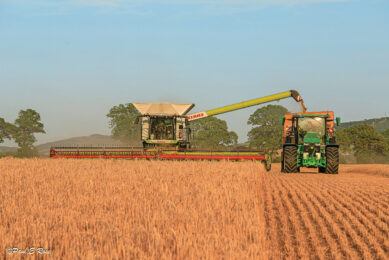“Autonomous farm equipment market worth US$ 150 Bn by 2031”

According to the latest report on autonomous farm equipment by Fact.MR, the global autonomous farm equipment market is projected to expand at over 10% CAGR through 2031, and top a market valuation of US$?150 Bn by 2031.
With growing inclination towards partially and fully automated tractors, harvesters, and other farm equipment, manufacturers are investing more in research & development (R&D) activities in order to capitalise on the upcoming opportunities, states the report.
The researchers say autonomous farm equipment, being highly efficient in saving time and cost in yielding, crop monitoring, and field & soil analysis, is gaining traction around the world.
As requirement for autonomous tractors equipped with auto-steering and auto data collecting systems is becoming prevalent, industry players are subject to witness sky-high demand over the coming years. According to Fact.MR, the autonomous farm equipment market is predicted to ascend at more than 10% CAGR over the next ten years.
Text continues underneath image
Artificial intelligence
Adoption of artificial intelligence is favoring autonomous farm equipment manufacturers owing to its unlimited advantages, such as:
- Capability of precision farming
- Usage of predictive analysis to optimise quality crop production
- Advanced solutions for timely harvesting, optimum planting, and soil & water management
The European Commission (EC) puts forward a European approach to artificial intelligence (AI) and robotics in order to boost farming and precision agriculture. The EC has also taken an initiative to develop Life Cycle Assessment (LCA) framework for product optimisation in the agriculture sector. Such initiatives are further strengthening the base of potential industry players, according to Fact.MR.
Also read: Why autonomy hurts big tractor manufacturers
Key challenges
Despite being highly sought-after for their efficiency and precision, the report identifies a few restraining factors faced by autonomous farm equipment manufacturers. For instance:
- Costly and complex production cycle
- Incorporation of AI and other cutting-edge technologies incurs additional costs
- Requires expert handling and maintenance
- Lack of knowledge may have negative impacts on production capacity and quality of crops
Also, the outbreak of the pandemic affected manufacturing companies due to shortage in supply of raw materials, unavailability of labor, financial crisis, and decline in demand.
However, with the adoption of the new normal and increase in R&D activities to minimise disadvantages, suppliers of autonomous farm equipment are expected to come across higher growth scope over the coming years.
Text continues underneath image
Autonomous tractors and harvesters highly demanded
The report identifies the United States, Germany, China and Japan as key markets for autonomous farm equipment. According to Fact.MR, autonomous tractors and harvesters are highly demanded due to their advantageous features, such as:
- Automatically planting with good accuracy
- Precise & reliable data collection regarding the condition of soil and planted crops
- GPS and other wireless technologies to take care of control station
According to Fact.MR, these segments will consistently fuel the sales of autonomous farm equipment manufacturers throughout the forecast period.
Future Farming spoke to Shambhu Nath Jha, Senior Research Consultant at Fact.MR, about the findings of the report and what this means for farmers and manufacturers. Watch for the upcoming article!
Join 17,000+ subscribers
Subscribe to our newsletter to stay updated about all the need-to-know content in the agricultural sector, two times a week.



